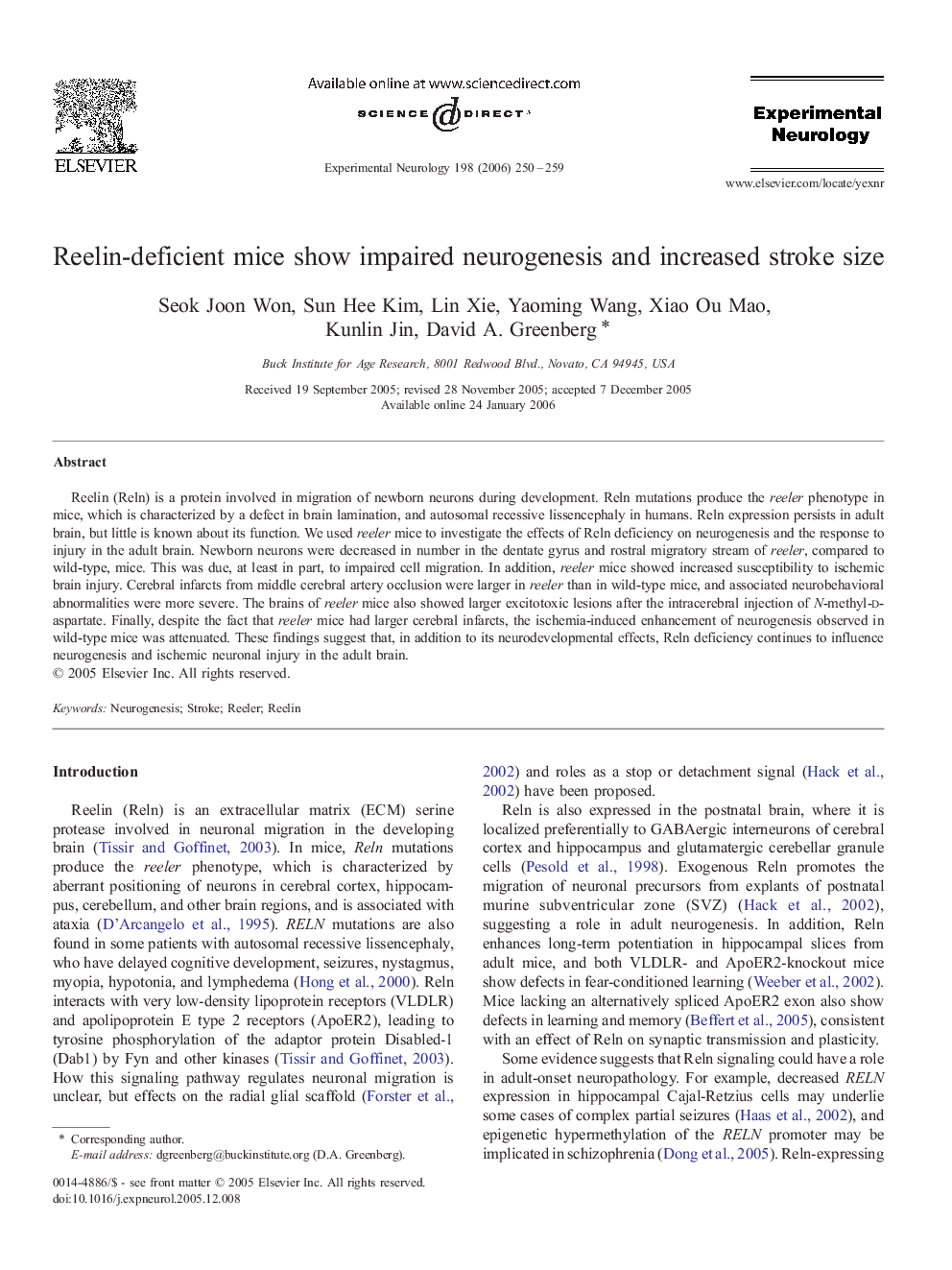| Article ID | Journal | Published Year | Pages | File Type |
|---|---|---|---|---|
| 3057444 | Experimental Neurology | 2006 | 10 Pages |
Reelin (Reln) is a protein involved in migration of newborn neurons during development. Reln mutations produce the reeler phenotype in mice, which is characterized by a defect in brain lamination, and autosomal recessive lissencephaly in humans. Reln expression persists in adult brain, but little is known about its function. We used reeler mice to investigate the effects of Reln deficiency on neurogenesis and the response to injury in the adult brain. Newborn neurons were decreased in number in the dentate gyrus and rostral migratory stream of reeler, compared to wild-type, mice. This was due, at least in part, to impaired cell migration. In addition, reeler mice showed increased susceptibility to ischemic brain injury. Cerebral infarcts from middle cerebral artery occlusion were larger in reeler than in wild-type mice, and associated neurobehavioral abnormalities were more severe. The brains of reeler mice also showed larger excitotoxic lesions after the intracerebral injection of N-methyl-d-aspartate. Finally, despite the fact that reeler mice had larger cerebral infarcts, the ischemia-induced enhancement of neurogenesis observed in wild-type mice was attenuated. These findings suggest that, in addition to its neurodevelopmental effects, Reln deficiency continues to influence neurogenesis and ischemic neuronal injury in the adult brain.
